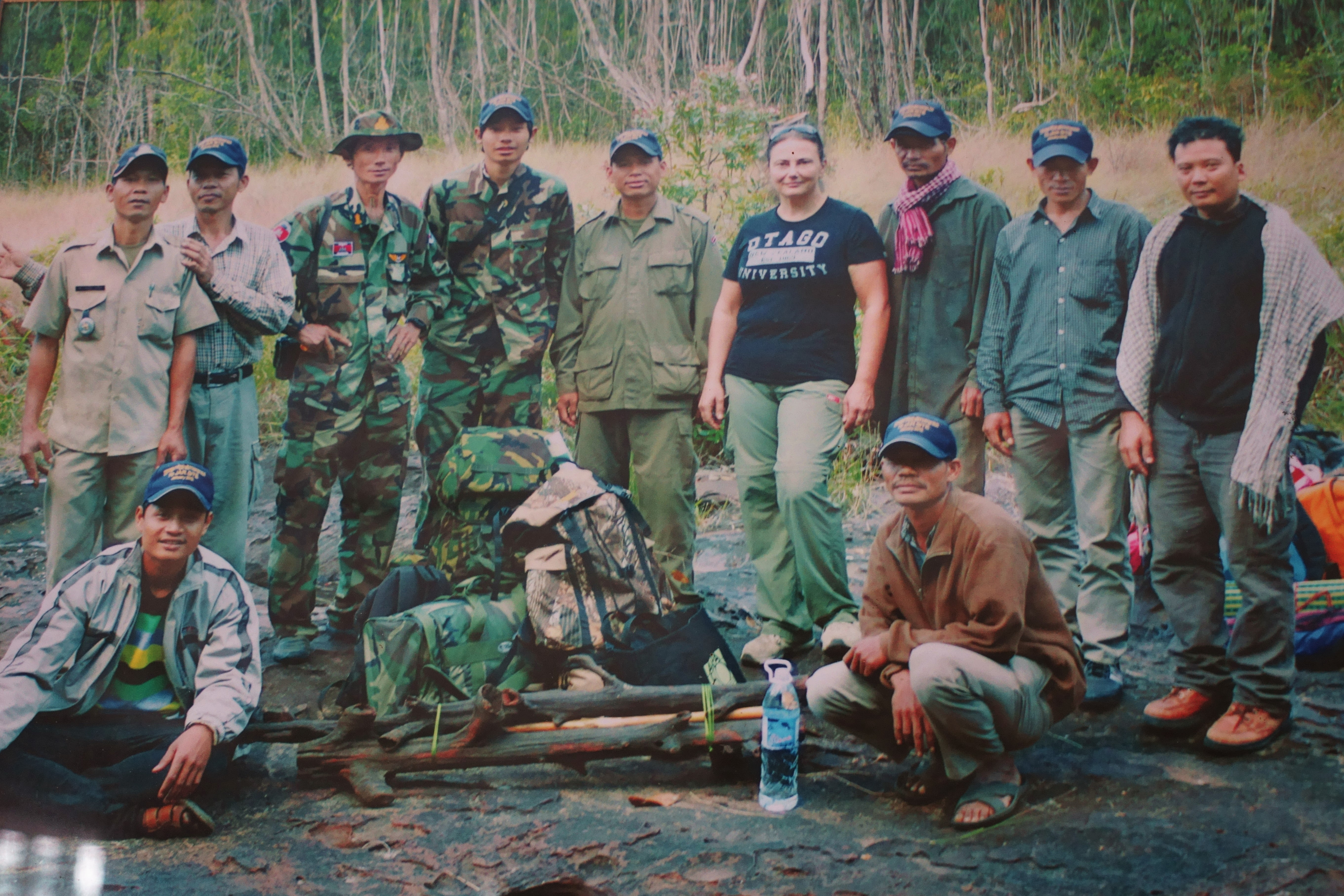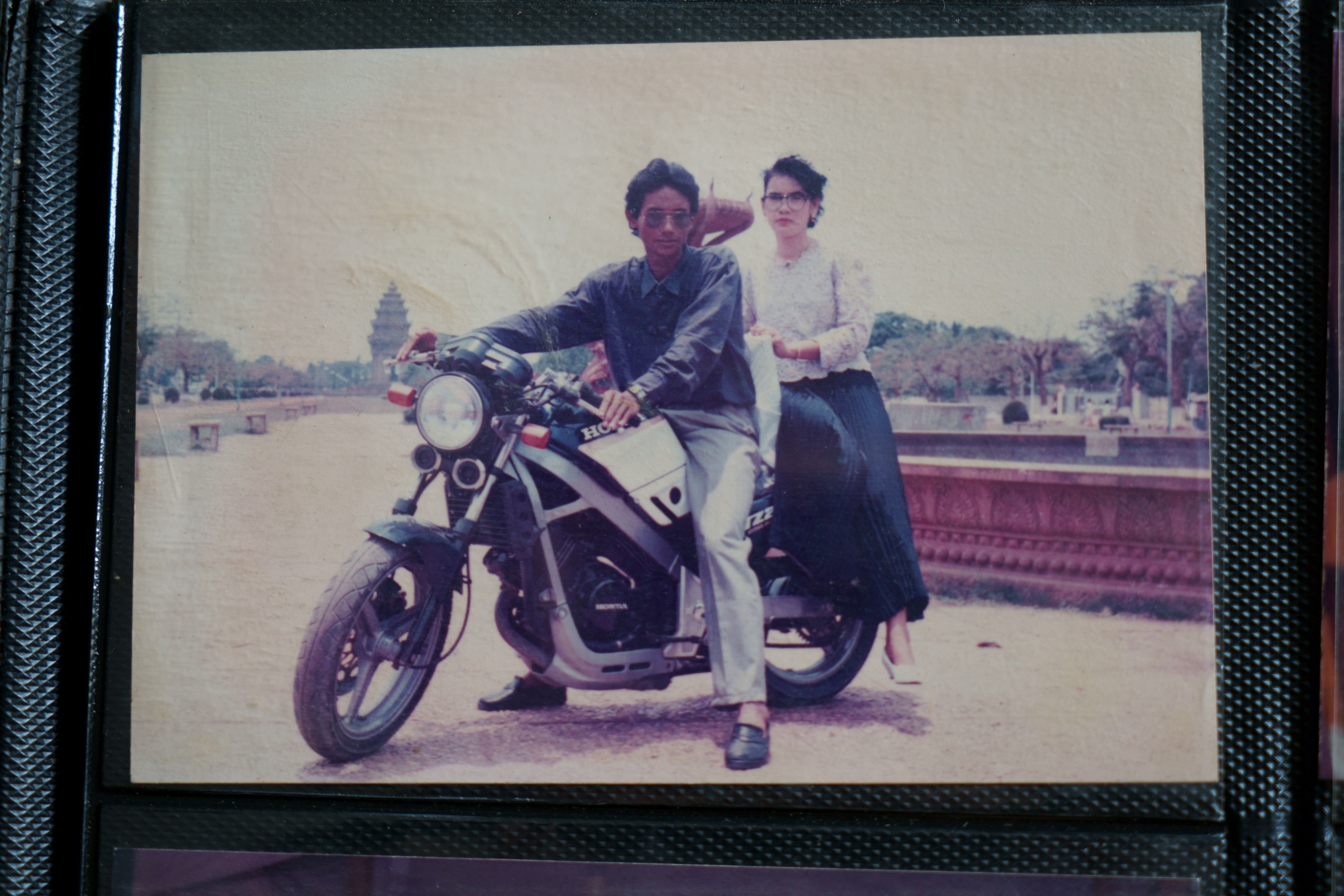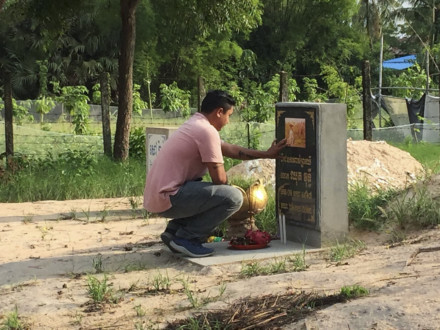26 April 2012
Koh Kong, Cambodia
Chut Wutty
Profession
Community
Motive
Environmental and indigenous activism
Exposure of illegal activity


Adolfo Olivas


Ahmed Divela


Amit Jethwa


Artan Cuku


Babita Deokaran


Bayo Ohu


Berta Cáceres


Bhupendra Veera


Bill Kayong


Boris Nemtsov


Boško Buha


Chai Boonthonglek


Charl Kinnear


Chut Wutty


Chynybek Aliev


Cihan Hayirsevener


Daphne Caruana Galizia


Darío Fernández


Derk Wiersum


Deyda Hydara


Édgar Quintero


Edmore Ndou


Edwin Dagua


Federico Del Prete


Fernando Villavicencio


Gezahegn Gebremeskel


Gilles Cistac


Habibur Mondal


Igor Alexandrov


Jacob Juma


Ján Kuciak


Javier Valdez


Joannah Stutchbury


José Ángel Flores


Jules Koum Koum


Kem Ley


Luis Marroquín


Mahamudo Amurane


Marcelo Rivera


María Elena Ferral Hernández


Marielle Franco


Milan Pantić


Milan Vukelić


Muhammad Khan


Nelson García


Nihal Perera


Oliver Ivanović


Orel Sambrano


Perween Rahman


Peter R. de Vries


Rajendra Singh


Salim Kancil


Sandeep Sharma


Sikhosiphi Radebe


Slaviša Krunić


Soe Moe Tun


Victor Mabunda


Virgil Săhleanu


Wayne Lotter


Yuniol Ramírez


Zezico Guajajara
26 April 2012
Koh Kong, Cambodia
Profession
Community
Motive
Environmental and indigenous activism
Exposure of illegal activity
When journalist Olesia Plokhii and her Cambodian colleague went on a reporting trip to investigate illegal logging in Cambodia’s east, they never imagined the turn it would take. ‘It was a horrific moment, you know, everything in your stomach drops,’ said Plokhii. ‘I looked over my shoulder and in the distance behind us we saw two motorcycles. Three soldiers and military police were coming on two bikes. They had AK-47s strapped to their backs.’
Environmental activist Chut Wutty had taken the two reporters from the national newspaper Cambodia Daily to a site belonging to the Timbergreen Company in Koh Kong, where he believed illegal logging was taking place in the rainforest. Wutty would not survive the day.
Wutty had been a Russian-trained Cambodian military officer before he turned to environmental protectionism at the beginning of the 2000s. When he saw that natural resources were being destroyed by corrupt officials and rich businessmen, he began to work with NGOs, such as Global Witness and Conservation International, before starting his own organization aimed at protecting Cambodia’s already depleted forests from illegal logging. In his work, Wutty had led local communities to patrol forests and burn any illegally logged wood they found.
His military background came in useful, said Plokhii. ‘He had a lot of institutional knowledge. He also had an emotional knowledge. He was tuned in, he knew people, he knew the answers. He knew etiquette and he was passionate, and he was willing to die for what he did.’
Marcus Hardtke, an independent environmentalist in Cambodia who worked closely with Wutty for about a decade, said that illegal logging is made possible by corruption at the highest levels of the Cambodian government. According to Hardtke, local governments tolerate illegal logging activities because they are paid off by both small-time and big-scale loggers. This corruption reaches high-ranking government officials, he said.
Hardtke described illegal logging as a ‘textbook’ example of organized crime. ‘It operates outside the law,’ he said. He explained it as being a hierarchical system, in which each person must pay a sum to the next person above them in the chain of power. This might be a formal superior, he said, or someone who holds more authority because of their position in the government, connections to authorities, or wealth. Attempting to interfere in that chain is a dangerous game, Hardtke said. ‘It elicits threats and, occasionally, killings.’
According to Plokhii, Wutty believed that rich businessmen and government officials should not profit from destroying the livelihoods of people dependent on forests. This belief would eventually cost him his life. Being a thorn in the sides of many well-connected businessmen, Wutty regularly faced threats from illegal loggers and authorities.
On the afternoon of his death, Wutty’s old car wouldn’t start when he tried to drive himself and the two reporters to safety. By the time they had managed to shortcut the wires and start the car, it was too late. ‘Right when I was about to open the driver-side door, I heard a shot towards the car,’ Plokhii said. Wutty was dead.
Plokhii and her colleague first fled into the forest, but then decided to turn back, as their chances of surviving in the jungle were even slimmer. By the time they returned, one of the military police officers, In Rattana, was also dead.
In October 2012, a court found Timbergreen’s chief security guard, Rann Borath, guilty of ‘unintentional homicide’ for the death of Rattana and handed him a two-year jail sentence, three-quarters of which was suspended. Prosecutors had argued that Rattana had in fact shot Wutty. They said Borath had then tried to take Rattana’s rifle and accidentally pulled the trigger, killing the military officer. ‘It was a cover-up,’ Plokhii said.
Borath was released shortly after the trial. Human-rights organizations continue to call for a thorough and independent investigation into the murder. The government itself offered a variety of explanations, including that Rattana had shot himself out of remorse, that he had shot himself twice by accident, and even that Wutty had shot him. Human-rights organizations and observers have deemed all of those explanations implausible; many questions remain.
Wutty’s son, Cheuy Oudom Reaksmey, is one of those still searching for justice. His childhood was shaped by his father’s environmental activism. Reaksmey described how Wutty would barely sleep at home and would come to their house on the outskirts of Phnom Penh perhaps only twice a month. The rest of the time he would sleep in the countryside or in his office in the capital.

Chut Wutty and his son Cheuy Oudom Reaksmey (third and fourth from left) on a field trip

Wutty and his wife in front of Independence Monument, Phnom Penh

Wutty's son at a memorial at the scene of the shooting
Now 27, Reaksmey has long followed in his father’s footsteps. In 2016, he took over the presidency of Wutty’s NGO, Natural Resource Protection Group, but his engagement in environmental causes dates back to his childhood. As a teenager, he would often accompany his father on trips while he was patrolling the forests. They would visit communities and discuss strategies for countering illegal logging.
This brought Reaksmey close to the risks the work entailed.
‘I used to tell him to stop because one day he would die. But he wanted to die, because he wanted to die in honour,’ Reaksmey said. ‘It was hard for me as a child to tell him what to do. His personality was like a soldier; he forged ahead.’
Yet, despite being aware of the risks, Reaksmey didn’t actually believe that his father would be assassinated; he was more worried about him being arrested or beaten up.
On several previous occasions, Reaksmey had been relayed rumours that his father had died – all proven wrong. So when he received the phone call on 26 April 2012, he at first took it for yet another unsubstantiated rumour. ‘At 10 a.m. [my father] had called me and told me that he would be travelling back to Phnom Penh,’ Reaksmey revealed. Just two hours later, Wutty was shot.
‘I could not believe it until I saw his body,’ said Reaksmey. ‘It is difficult to accept that, because we used to have a father and now we don’t.’


20 July 2010
Gandhinagar, India
Amit Jethwa


15 October 2016
Mumbai, India
Bhupendra Veera


21 June 2016
Sarawak, Malaysia
Bill Kayong


11 February 2015
Klong Sai Pattana, Thailand
Chai Boonthonglek


5 May 2004
Bishkek, Kyrgyzstan
Chynybek Aliev


20 August 2000
Dhaka, Bangladesh
Habibur Mondal


10 July 2016
Phnom Penh, Cambodia
Kem Ley


16 October 2018
Haripur, Pakistan
Muhammad Khan


5 July 2013
Deraniyagala, Sri Lanka
Nihal Perera


13 March 2013
Karachi, Pakistan
Perween Rahman


19 June 2018
India
Rajendra Singh


26 September 2015
Selok Awar-Awar, East Java, Indonesia
Salim Kancil


24 March 2018
Bhind, Madhya Pradesh, India
Sandeep Sharma


13 December 2016
Monywa, Myanmar
Soe Moe Tun